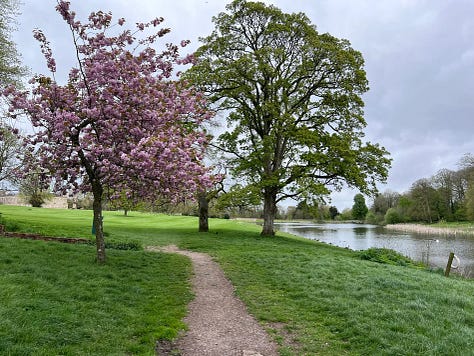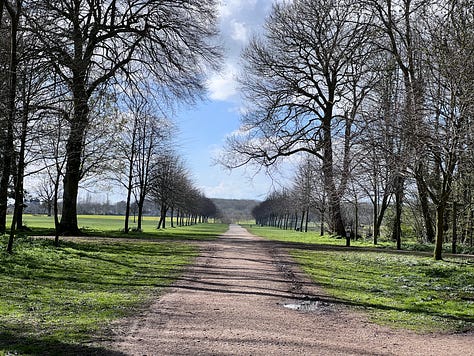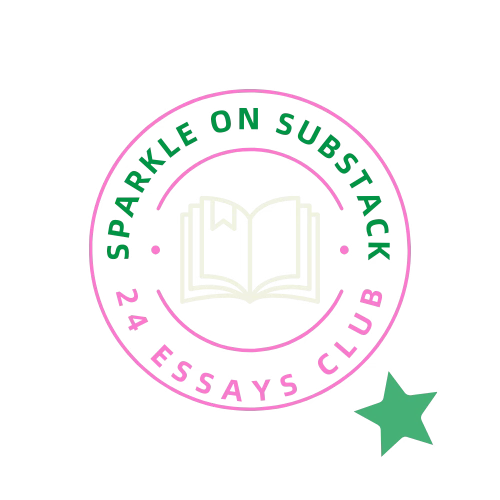Time smart: “How to reclaim your time and live a happier life”
Today's book-inspired experiment comes from the book 'Time Smart' by Ashley Whillans.
Let's dive into how ‘Time Smart’ by Ashley Whillans helps us reclaim our time, and as a result, we might end up happier with our lives.
Imagine strolling through a park, letting the sun rest on your skin. You rest by lying on the green grass and staring at the tips of the trees. You have no pressing commitments—just time to take in the beauty and slow down.



It’s almost impossible to imagine, isn’t it? Such a slow-down moment often feels like a luxury you simply can’t afford.
Yet, according to Harvard Business School professor Ashley Whillans: ”this feeling of having enough time—time affluence—is the key to enhancing personal well-being and happiness.”1
Let that sink in for a moment.
We're all trapped in what Whillans calls a "time-poverty mindset," constantly racing against the clock, barely catching our breath. Meanwhile, the concept of "time affluence" – where you actually own your time and use it for stuff that matters – feels like a fantasy reserved for a few.2
Whillans argues that “adopting a time-affluent mindset is a process, not an overnight change. Becoming time-affluent is not a one-off event. It involves consciously reminding ourselves that time, not money, is our most valuable asset. It’s about making decisions in line with our values and deliberately making choices that contribute to time affluence.”3
While we obsess over our workload, we overlook the most precious resource of all—our time. Money feels tangible, while time feels abstract, so we default to chasing dollars. It's a trap, and it keeps you stuck and tied to your day job.
Whillans isn't suggesting you quit tomorrow. Instead, she proposes a shift in mindset:
"Becoming time-affluent is not a one-off event. It involves consciously reminding ourselves that time, not money, is our most valuable asset."
Where Does Your Time Really Go?
While we obsess over our workload, we overlook the most precious resource of all—our time. Money feels tangible, while time feels abstract, so we default to chasing dollars. It's a trap, and it keeps you stuck and tied to your day job.
Laura Vanderkam’s 168 Hours: You Have More Time Than You Think encourages readers to conduct a weekly time audit to uncover hidden opportunities. You might find that the hours you thought you didn’t have are right there, waiting to be reclaimed.
A New Perspective on Prioritizing
What if you started viewing your precious free hours as investments in your writing career, rather than just "time off"? What if you ruthlessly guarded your evenings and weekends, using them to craft essays?
Greg McKeown’s Essentialism: The Disciplined Pursuit of Less is a masterclass in cutting out non-essentials and focusing on what truly matters. His advice complements Ashley Whillans’ perspective: prioritizing time over money and learning to say no to distractions is the gateway to a more intentional life.
So, how do we start rewiring our brains?
Whillans suggests some strategies that might feel uncomfortably familiar to those of us who've gone down the productivity rabbit hole before:
Reflection and documentation (I can hear your collective groans)
Brutal honesty about how we spend our time
Identifying time-sucks and replacing them with meaningful activities
“Understanding why we squander our time away with games or mindless scrolling helps us replace such habits with meaningful tasks, like pausing to chat with a loved one.“4
Jake Knapp and John Zeratsky’s Make Time: How to Focus on What Matters Every Day expands on these ideas with a practical framework. Their "highlight" method—choosing one meaningful task to focus on daily—can help you direct your energy toward writing, minimizing interruptions and distractions.
Oliver Burkeman’s Four Thousand Weeks: Time Management for Mortals takes this a step further by reminding us of the finite nature of life. With an average of just 4,000 weeks to live, Burkeman argues, we should shift our focus from chasing productivity to savoring moments and pursuing our passions.
Now, I know what you're thinking. "Easy for her to say! My student loans aren't going to pay themselves!" And you're right – if you're genuinely struggling to make ends meet.
But here's where it gets interesting: the mindset shift is the crucial first step. Whillans explains,
"Believing that time holds as much importance as money—and often more than money—is the first step to time affluence."
What if you started viewing your precious free hours as investments in your writing career, rather than just "time off"? What if you ruthlessly guarded your evenings and weekends, using them to craft essays?
It's not about magically manifesting more hours (though if you figure that out, let me know). It's about a fundamental shift in valuing and prioritising your time. As Whillans puts it, "shifting the scale of work-life balance in favour of time—instead of money—can free us from the constant feeling of being 'time-poor' and enable us to truly savour our lives."
Now, I'm not here to offer a magic solution. This type of work is hard. But maybe, just maybe, reframing how you think about time is the first step towards that Substack dream.
Savouring the Ordinary
Finally, it’s worth considering Laura Vanderkam’s Off the Clock: Feel Less Busy While Getting More Done. She explores how being fully present in your daily activities can create a sense of time affluence. Whether it’s a slow stroll in the park or an uninterrupted hour spent writing, learning to savor the ordinary can make time feel richer and more abundant.
So, how do we start rewiring our brains? I challenge you:
Take Whillans' advice to heart.
Examine where your time is really going (168 Hours can help with that).
Set some actual goals for your writing (Make Time offers practical tools).
Prioritize ruthlessly (Essentialism will show you how).
Minimize interruptions.
Face your procrastination head-on (Atomic Habits will guide you).
By making these shifts, you can move closer to crafting a life where time isn’t just slipping away—it’s a resource you control and cherish.
As Burkeman reminds us, “Time is not a thing to be used; it is the medium we live within.” Let’s make the most of it.
This is the fourth post out of 24 essays I plan to write as part of the Sparkle on Substack Essay Club to keep myself accountable and post regularly.
If life often gets in the way of your regular writing and you are a fellow Substacker (which many of you are), I'd recommend you join
and Essay Club.




I took the quiz and tallied my results and it was about where I thought I would be. I’ll have a look through some of the older articles you mentioned and try to brush up on my prioritisation and goal setting. As you say, I have a habit of doing busy work without being focused on the main priority
Another great article, with a unique perspective on time affluence I haven’t seen before!